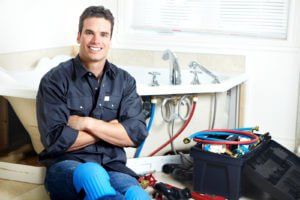Mobile Home Plumber Near Me
Urgent plumbing needs? Call us now to get connected to a plumber near you.
Plumbers That Work On Mobile Homes Near Me
Are you looking for a plumber to come out and fix your home’s plumbing? If you are a mobile homeowner, you must have wondered, where can I get a mobile home plumber near me?
Looking for plumbing services may seem like an easy task, but there are many things that can go wrong with the plumbing systems in your house or business.
If you need a plumber who can help with any plumbing issues on your mobile home system, then look no further. We have the perfect solution for you. Our company is dedicated to providing quality service to our customers.
Just call us right away. Our phone number is listed at the top and bottom of this page. To request a free estimate, please visit our official website (https://www.24emergencyplumbers.com)
Frequently Asked Questions When Trying to Get a Plumber
Is mobile home plumbing different?
Mobile homes have their own set of plumbing codes. These special rules govern everything from water pressure to what chemicals can be used in a plumber’s tank.
Areas such as Oregon have an altogether different code for these properties, which means there are some interesting differences when it comes time to fix the leaks or turn on your taps.
The cost of living in a mobile home is much lower than that of traditional-style housing. This means the types and styles used for these structures are also cheaper, so it’s important to know about plumbing when you think about buying or building your new place.
Many tiny houses and mobile homes have toilets, showers, and water heaters, but the fixtures are usually much smaller.
What are these mobile differences?
Before looking for a plumber for a mobile home near me, it’s important to understand mobile differences.
Compared to traditional plumbing, mobile home plumbing has the following differences. These differences are based on the size, shape, and affordability of mobile homes.
Materials
The pipes approved for use in mobile homes during the 1960s and 1980s often did not meet the standards for larger, more established structures.
Copper is and has been the pipe material of choice for most modern homes, but plastic pipes are more common among older mobile homes. Modern mobile homes solve this problem by using PEX tubing, which often lasts longer than copper pipes.
Location of pipes
Because mobile homes differ from traditional homes in their structure, it is not surprising that the location of pipes also differs.
In mobile homes, water lines run from floor to wall, just like in traditional homes where they originate in the wall. Both types of pipes work in the same way and are equally efficient.
It is important to keep in mind that the location of pipes in mobile homes differs from the placement of pipes in traditional homes when changing plumbing fixtures. For example, there must be enough space in sink cabinets for water pipes to fit.
Additionally, you may have to use straight stop valves instead of angle stop valves when connecting your water lines, in order to maximize space.
What kind of plumbing is used in mobile homes?
Most mobile homes use plastic. Plastic piping is used in mobile home plumbing because it is much easier to work with and less costly.
Mobile homeowners can enjoy the benefits of plastic piping because it is relatively inexpensive to work with, easy to replace when necessary, and also durable in most weather conditions. It can be used in sewer lines or water supply pipes.
Some mobile homes are equipped with copper piping instead of plastic piping because it is more durable in certain conditions. However, there are still many mobile homes that are equipped with PVC piping.
The key difference between plastic and copper is that plastic has a longer life expectancy than copper piping, although both types of pipes will need to be replaced eventually.
What are the most common plumbing problems?
Plumbing problems vary depending on the home and may be specific to a smaller area of the house, such as a bathroom. Understanding the common problems may help prevent future problems, reduce costs and even improve water quality.
Some of the most common plumbing issues include:
Clogs
Detergents, grease, or another buildup can clog your drain lines or drains in your home, leading to slow drainage caused by pockets of standing water. One way to avoid this issue is to avoid using your garbage disposal. Once the food is ground up, it has a much greater surface area to stick to the pipes.
Leaky faucets and pipes
Leaky faucets and pipes are some of the most common plumbing problems. The average American household has seven leaks that waste more than 10,000 gallons of water per year. Leaks occur for a variety of reasons, such as worn washers in faucets and corroded pipes.
Faucets and showerheads can also clog up due to mineral deposits, unsatisfactory flow rate, or low water pressure, as well as external causes such as limescale buildup from hard water. If this happens, you should be thinking of getting home plumbing repair near me.
Water heater issues
The average life expectancy of a water heater is 8-12 years. There are a number of issues that can cause your water heater to fail, including rusting of the tank and erosion of the insulation.
Low water pressure
Water pressure problems are common with older homes, as the water pressure might not be high enough to push through corroded copper pipes and other plumbing fixtures.
Hot water is not available (or cold)
Hot water lines and valves should never be allowed to freeze during the winter because frozen lines will burst when they thaw out in the spring. Frozen pipes are also more susceptible to leaks, which will waste even more water.
Low hot water pressure is often due to constriction of available paths for the flow of hot water through the home, which is usually caused by scale buildup or debris clogging the pipes.
How do you unclog a main drain in a mobile home?
Sometimes the main drain line gets clogged with hair and other stuff. To clean it out, you need to use a snake.
If the drain is on an outside wall, you can drill a hole through the exterior of your mobile home, then run the snake through it from the outside. However, if the drain is inside a cabinet or wall, you’ll need to remove the cabinet or wall covering and snake from inside your mobile home.
Here’s how:
• Connect a garden hose to the end of the snake. It helps if you put a fitting on one end to connect a garden hose. Make sure that the other end has an attachment for getting into drains, such as a hook or eyelet.
• Remove any covering over the drain so you can snake it from inside your mobile home. You can just remove the cabinet and snake it from underneath, or you might have to cut a hole in the wall.
• Feed the other end of your garden hose through an open window and secure it so that water cannot escape out of the open window.
• Turn on the faucet with cold water and feed more than enough hose down the drain so that when you push the snake in, it won’t get hung up.
• Feed your snake into the drain until it reaches the clog. You’ll have to push pretty hard to force it through the clamping mechanism of your main drain line.
• Turn on a hot water faucet and feed more hose down the drain until the hose is almost submerged.
• Spray hot water from your faucet onto the clog as you use a plunger on the end of the snake to push it through. If you have a power drill, attach it to the other end and use that to force it through.
• Once the hose goes all the way through, turn off both faucets and remove the hose from inside your mobile home.
• Turn on the main drain line valve to let all the water flow down it and flush out any debris that was backed up in the drain.
• Disconnect your garden hose from the open window and use a wet/dry vacuum to suck up any water that might have gotten inside your mobile home.
• Reconnect the cabinet or wall covering.
If this doesn’t work, you might need to use a chemical method or hire a plumber who offers manufactured home repairs. If you have metal plumbing, it’s essential that you don’t use chemicals because they corrode metal over time and cause leaks.
How does a mobile home get water?
Most homes have their water lines run directly to the water meter, but mobile homes are different. Mobile home parks require a fire line that runs around the perimeter of the park with a shutoff valve for each individual home. This enables firefighters to shut off all of one owner’s utilities from a single spot if needed.
How deep is the main water line?
The main water line is usually around three feet deep. Some are deeper, though, depending on where you live. For example, if you live in a desert, there may be no water available at all and the main water line would have to go up to ten feet deep.
How do you increase water pressure in a mobile home?
An increase in water pressure can be achieved by adding a water meter and/or a pump. It is possible to add an entire system (water meter, pump, and pressure regulator).
These systems are usually installed on the outside of the mobile home, but sometimes they are buried under concrete or asphalt.
Mobile home parks might have this type of system available to you for a monthly fee.
Click here to
learn more info
about our plumbing service areas.
Let us fix your plumbing issue quickly & easily today!
call our 24/7 emergency plumbing service number: (888) 855-4720, enter your zip code, and then wait to be connected with a plumber near you.
© Copyright 2021 Local Trusted Plumbers - is a free service that aids homeowners in connecting with local plumbers. All plumbing contractors are independent and as such we cannot warranty or guarantee their work. It is the duty of the customer to verify that the plumber has the proper licensing and/or insurance before hiring. sitemap


